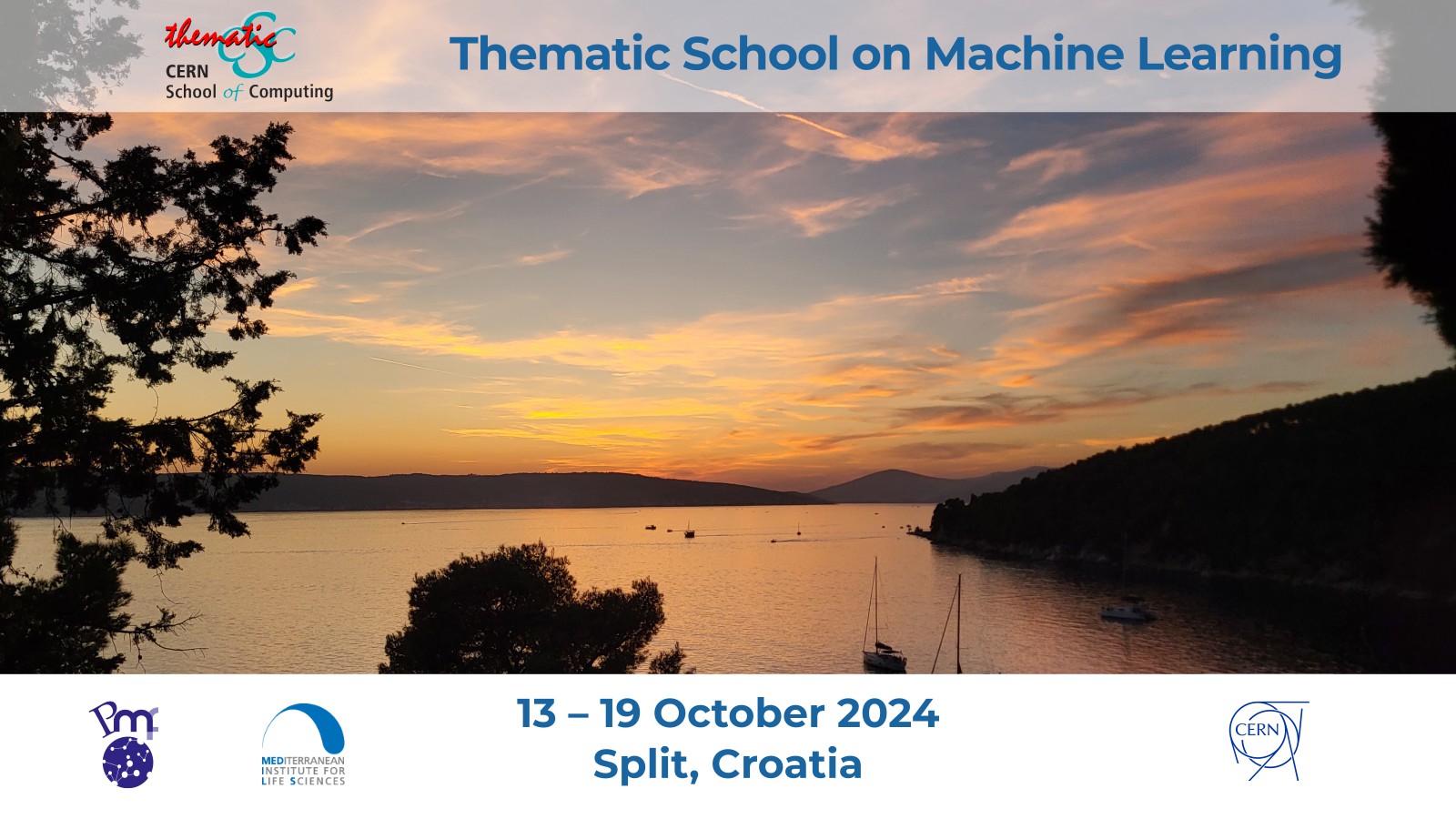Thematic CERN School of Computing on Machine Learning 2024
MedILS, Split, Croatia
The 15th Thematic CERN School of Computing (tCSC Machine Learning 2024) will take place on October 13-19, 2024.
The school will focus on the theme of Machine Learning and Artificial Intelligence applied to Data Analysis and Accelerator Technology. The programme will offer 22 hours of lectures and hands-on exercises, and student presentation sessions.
This school is organized by CERN in collaboration with the Faculty of Science, University of Split. The school will take place in Split, Croatia, and be hosted at the Mediterranean Institute For Life Sciences (MEDILS) Conference Centre. The Centre is a historical renovated building situated in a wooded and landscaped park located on the Adriatic Sea coast, a few kilometers from the centre of Split.
Important dates 2024
- 8 May application opens
- 19 June application close
- 3 July invitations sent to selected students
- 4 September participation fee deadline
